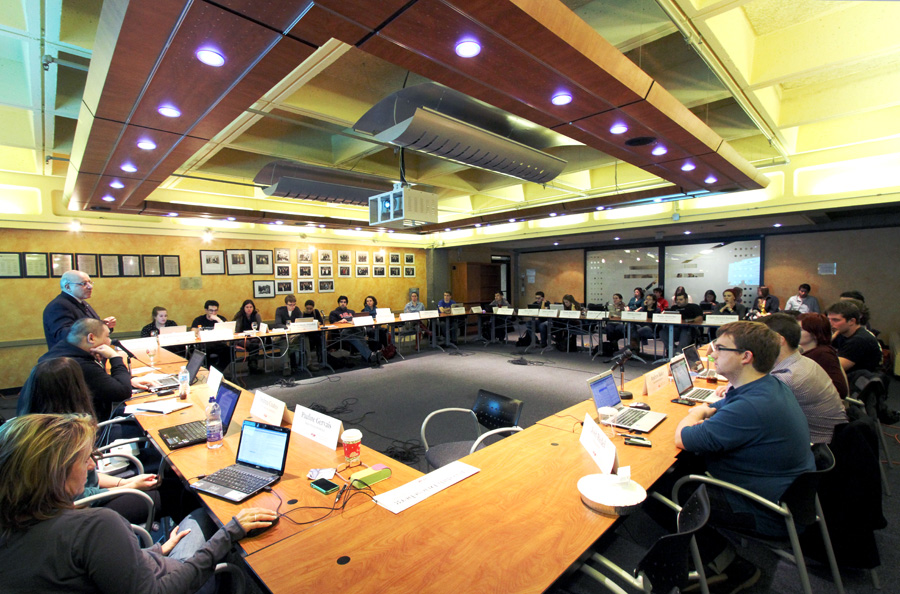During the Students’ Society of McGill University’s (SSMU) first Legislative Council meeting of the semester, Council called for the Quebec Student Roundtable (La Table de concertation étudiante du Québec, or TaCEQ), of which SSMU is a member association, to organize an États Généraux on the role of education in Quebec society, separate from the Education Summit scheduled by the provincial government for February.
An États Généraux is a broad consultation about a specific issue commissioned by the government.
SSMU Vice-President External Robin Reid-Fraser presented the motion to Council.
“I’ve reached the conclusion—and I think there are a lot of groups who feel similarly—that the process of the Education Summit that we have going on right now is not as big as it could be,” Reid-Fraser said.
She also expressed disappointment with how little time the Parti Québécois (PQ) has given student associations and other groups to prepare for the Summit by announcing it in November. Reid-Fraser further expressed frustration with the Summit’s apparent lack of structure at this point–despite the many meetings that have been held by the PQ with various student associations, and other members of the education community to create a framework.
“I feel like we are at this really important time in a lot of ways, and the conversations we are having [in these meetings hosted by the government] are just not enough,” Reid-Fraser continued.
Reid-Fraser originally wanted Council to call on TaCEQ to hold an alternative education summit, but came up with the idea of organizing an États Généraux, after talking with Simon Charonneau, a SSMU political attache and press secretary.
She explained that the États Généraux would be put on by the National Assembly, and would be a much longer process—one that could take up to twelve to eighteen months, or as long as the consultations need to be completed. According to Reid-Fraser, consultations would occur across the province with many different groups from the university community.
A few councillors expressed concerns about calling an États Généraux at this time.

“[An] États Généraux may make sense. But I think we ought to be far more prepared before we call on the government to conduct one,” he said. “We ought to think carefully about what we would like to get out of it, who we would like to be heard, and what areas we would like the États to focus on.”
SSMU Vice-President Clubs and Services Allison Cooper said she would like more information on what an États Généraux would entail. She motioned to send the original motion back to the External Affairs Committee to be re-examined. Cooper’s motion did not pass.
Music Representative Katie Larson supported both the original motion and the idea of an États Généraux.
“I think this is the most moderate, logical … way of going about the education issue,” Larson said. “I don’t see what the problem is, honestly. If you are going to represent students on Council, I think we should easily be passing this.”
Reid-Fraser also brought forth a motion that would call on TaCEQ to demand an audit of spending for all universities in Quebec at the government’s Summit in February.
“The idea with this [motion] is that there would be a process to fully see where universities use money, where they are spending the money that they have right now, does that make sense, and comparing universities across Quebec,” Reid-Fraser said.
Science Senator Moe Nasr pointed out that the university already undergoes an audit, and that a better alternative might be to look into government university funding.
“Why don’t you add [to the motion] to request the government to have an impartial third party audit on its university funding management because … the issue isn’t where university spending is going—it’s how funding is being mismanaged,” Nasr said.
After a discussion of whether or not an audit is the appropriate measure to be called for, Reid-Fraser proposed that the motion be tabled indefinitely, so that she could conduct further research and consultations.







